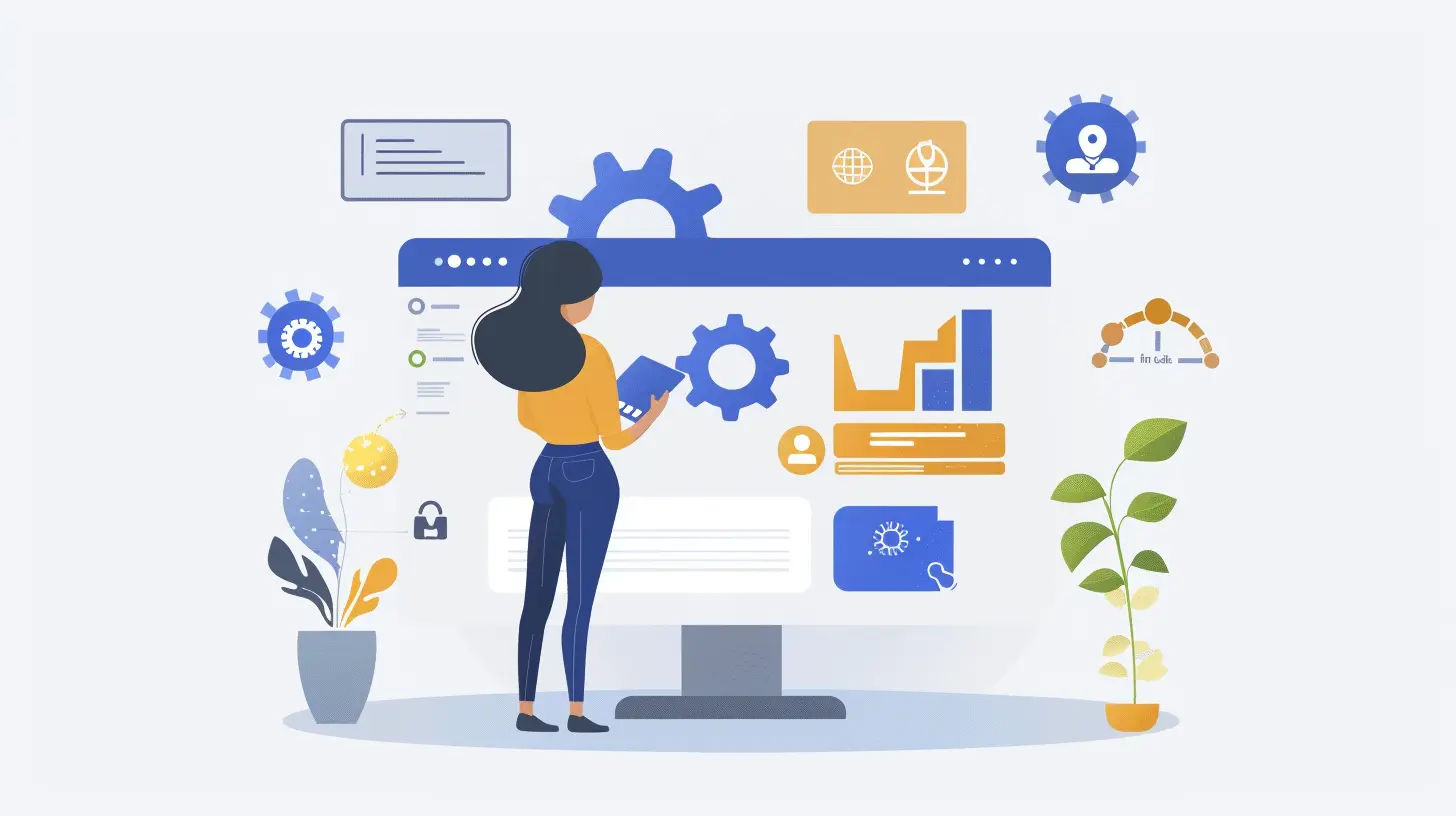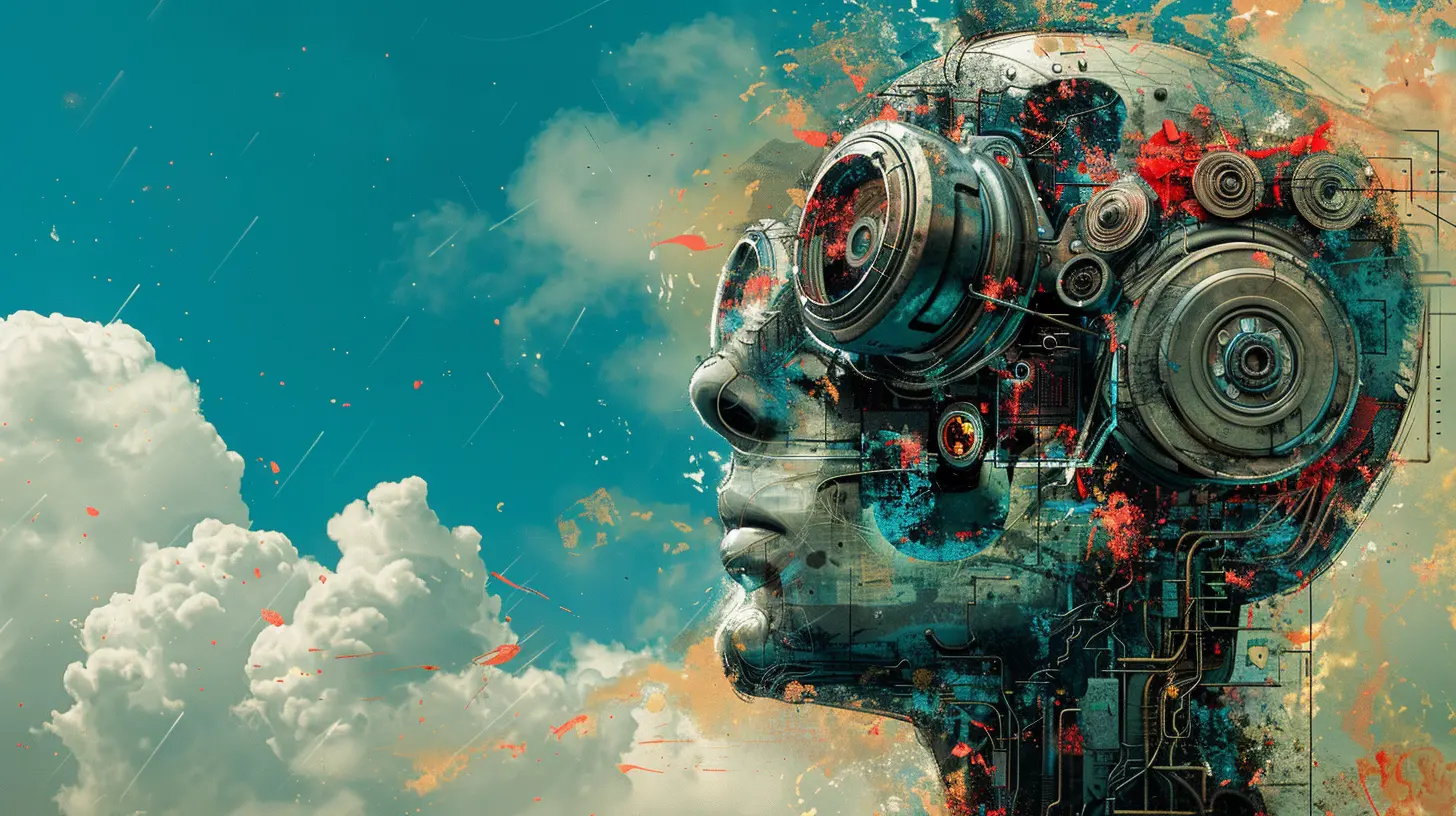How to Use AI for Smarter Lead Generation
8 May 2025
If you're running a business, you know how critical lead generation is to your overall success. It’s like the heartbeat of your sales funnel; without it, the whole system collapses. But let’s be real for a second—lead generation can be tough, time-consuming, and, frankly, pretty frustrating at times. That’s where Artificial Intelligence (AI) steps in. AI isn't just a buzzword anymore; it’s a game-changer that can transform the way you find, nurture, and convert leads into loyal customers.
In this article, we'll dig deep into how you can use AI for smarter lead generation. Whether you're a seasoned marketer or dipping your toes into sales for the first time, you're going to find plenty of practical advice here. Buckle up, because we’re about to rethink the way you approach lead generation.
Why AI Is a Game-Changer for Lead Generation
Let’s start with why AI even matters in the context of lead generation. Traditionally, finding and qualifying leads required a lot of manual research, cold outreach, and guesswork. You were basically throwing darts in the dark and hoping one would hit the bullseye. Not a fun process, right?AI changes all that. Thanks to its ability to analyze vast amounts of data and identify patterns, it can quickly do what would take humans hours—or even days. Plus, it makes your process way more efficient by focusing only on the leads most likely to convert. In short, AI makes you work smarter, not harder. Think of it as having a super-intelligent assistant who’s always two steps ahead of you.
Key Ways AI Can Be Used for Smarter Lead Generation
1. Automated Lead Scoring
Ever wasted time chasing leads that were never going to convert? Yeah, we’ve all been there. This is where AI-powered lead scoring swoops in to save the day. AI tools analyze historical data, customer behavior, and engagement patterns to rank potential leads based on how likely they are to turn into paying customers.For example, let’s say you’re running an email campaign. AI can track which leads are opening your emails, clicking on links, or engaging with your website. Instead of treating all leads equally, you can focus on the ones that are actually interested. It’s like panning for gold—AI helps you separate the valuable nuggets from the dirt.
2. Hyper-Personalized Outreach
Have you ever received a generic, one-size-fits-all email and immediately hit "delete"? Don’t be the brand that sends those. AI allows you to create hyper-personalized outreach strategies by analyzing individual customer data. This goes beyond just adding a lead’s first name to an email.For example, AI can look at a lead’s behavior—what pages they’ve visited, which products they’re interested in, or even what social media posts they’ve engaged with—and craft personalized messages that feel tailor-made for them. When your outreach feels personal, it doesn’t just grab attention; it builds trust.
3. Chatbots for Real-Time Engagement
Think about the last time you visited a website and had a question. Did you bother filling out a generic "Contact Us" form, or did you look for live chat? Modern customers want immediate answers, and AI-powered chatbots deliver just that.These aren’t the clunky, robotic chatbots of the early 2010s. Today’s AI chatbots can understand natural language, provide accurate responses, and even qualify leads by asking a series of smart questions. Imagine having a 24/7 sales assistant who can instantly engage with leads, answer their questions, and direct them to the next step in your sales funnel. That’s the magic of chatbots.
4. Predictive Analytics
Here’s the deal: AI can predict trends and behaviors with such precision it almost feels like it has a crystal ball. Through predictive analytics, AI can analyze historical data to forecast which strategies will work best for specific leads.Think about it like this: you’re playing chess, but instead of guessing what your opponent’s next move will be, you already know. Predictive analytics enables you to anticipate a lead’s needs before they even realize they have them. This is incredibly useful for not only finding leads but also timing your outreach for maximum effectiveness.
5. Content Optimization
We all know that content marketing is a powerful lead generation tool. But creating random blog posts or social media content and hoping for the best? That’s not a strategy.AI can help you optimize your content to attract the right leads. By analyzing search trends, social media activity, and even competitor strategies, AI can suggest what topics to write about, which keywords to include, and the best times to publish. It’s like having a cheat sheet for creating content that actually resonates with your target audience.
Tools That Can Help You Leverage AI for Lead Generation
The good news? You don’t have to be a tech genius to start using AI for lead generation. There are plenty of user-friendly tools available to help you get started. Here are a few popular ones:- HubSpot: HubSpot’s AI tools can help with everything from lead scoring to email personalization.
- Salesforce Einstein: A robust platform for predictive analytics and building customized lead generation workflows.
- Drift: An AI-powered chatbot platform designed for real-time engagement with website visitors.
- Lusha: Helps you find and verify contact information for leads in seconds.
- Act-On: This tool provides AI-driven insights to optimize your marketing strategies.
Each of these tools can supercharge your lead generation efforts, making your process faster, smarter, and more effective.
How to Get Started with AI for Lead Generation
You’re probably thinking, “This all sounds great, but where do I even start?” Don’t worry; I’ve got you covered. Here’s a simple roadmap:1. Define Your Goals
First things first—figure out what you want to achieve. Are you looking to find more leads? Qualify them faster? Improve your conversion rates? Knowing your objectives will help you choose the right AI tools and strategies.2. Gather and Organize Your Data
AI thrives on data, so you need to make sure yours is clean, organized, and accessible. This includes customer contact information, website analytics, engagement metrics, and more.3. Choose the Right Tools
As we mentioned earlier, there’s no shortage of AI tools for lead generation. Start with one or two that align with your goals and gradually scale up as you get more comfortable.4. Test and Optimize
AI isn’t a set-it-and-forget-it deal. Monitor your campaigns, analyze the results, and adjust your strategies based on what’s working. The more data you feed the AI, the smarter it gets.Challenges to Keep in Mind
Let’s be honest: no technology is perfect, and AI is no exception. Here are a few challenges you might face:- Data Quality: AI is only as good as the data you feed it. If your data is incomplete or outdated, your AI predictions and analyses won’t be accurate.
- Cost: Some AI tools can be pricey, especially if you’re a small business. Start with free or affordable options and scale up as you see ROI.
- Learning Curve: While many AI tools are user-friendly, there’s still a learning curve involved. Be prepared to invest some time in training yourself or your team.
Wrapping It Up
In a world where competition is fierce and attention spans are short, using AI for smarter lead generation isn’t just an option—it’s a necessity. From automated lead scoring to hyper-personalized outreach and predictive analytics, AI has the potential to transform your lead generation strategy from clunky and time-consuming to sleek and efficient.But here’s the thing: AI isn’t replacing human marketers anytime soon. It’s a tool—a really smart one—that can help you work more effectively. So, why not embrace it and start turning those lukewarm leads into red-hot opportunities?
all images in this post were generated using AI tools
Category:
Lead GenerationAuthor:

Baylor McFarlin
Discussion
rate this article
5 comments
Elowen Edwards
AI transforms lead generation by analyzing vast data to identify potential clients more efficiently than traditional methods. However, as we embrace this technology, it's crucial to maintain a human touch in our interactions. Balancing automation with genuine engagement will not only enhance results but foster meaningful relationships in an increasingly digital landscape.
May 14, 2025 at 6:24 PM

Baylor McFarlin
Absolutely! Balancing AI efficiency with a personal touch is key to successful lead generation. It enhances engagement while building lasting relationships.
Taylor McBride
Leveraging AI for lead generation not only enhances targeting precision but also streamlines engagement strategies, enabling businesses to cultivate deeper customer relationships and drive conversion rates more effectively.
May 13, 2025 at 11:32 AM

Baylor McFarlin
Thank you for your insightful comment! I completely agree that AI significantly improves targeting and engagement, ultimately fostering stronger customer relationships and boosting conversions.
Olive Shaffer
Leverage AI for targeted insights.
May 11, 2025 at 12:56 PM

Baylor McFarlin
Absolutely! AI can analyze data patterns to identify potential leads, enabling more focused and effective outreach strategies.
Leo Lozano
Excited to explore AI's potential—how can it transform lead generation for businesses?
May 10, 2025 at 3:48 AM

Baylor McFarlin
AI can enhance lead generation by analyzing data patterns, automating outreach, and personalizing interactions, ultimately increasing efficiency and conversion rates for businesses.
Quincy McTiernan
AI: Your new bestie!
May 9, 2025 at 12:15 PM

Baylor McFarlin
Absolutely! AI can streamline processes and enhance targeting, making it an invaluable ally in lead generation.
MORE POSTS

How Business Consulting Redefines Customer Experience

How to Build a Brand Persona That Resonates Across Social Media Channels

Tackling Cash Flow Bottlenecks: Solutions for Common Problems

Scaling Your Business: Building a Strong Operational Model

How to Thrive in a Competitive Social Media Landscape